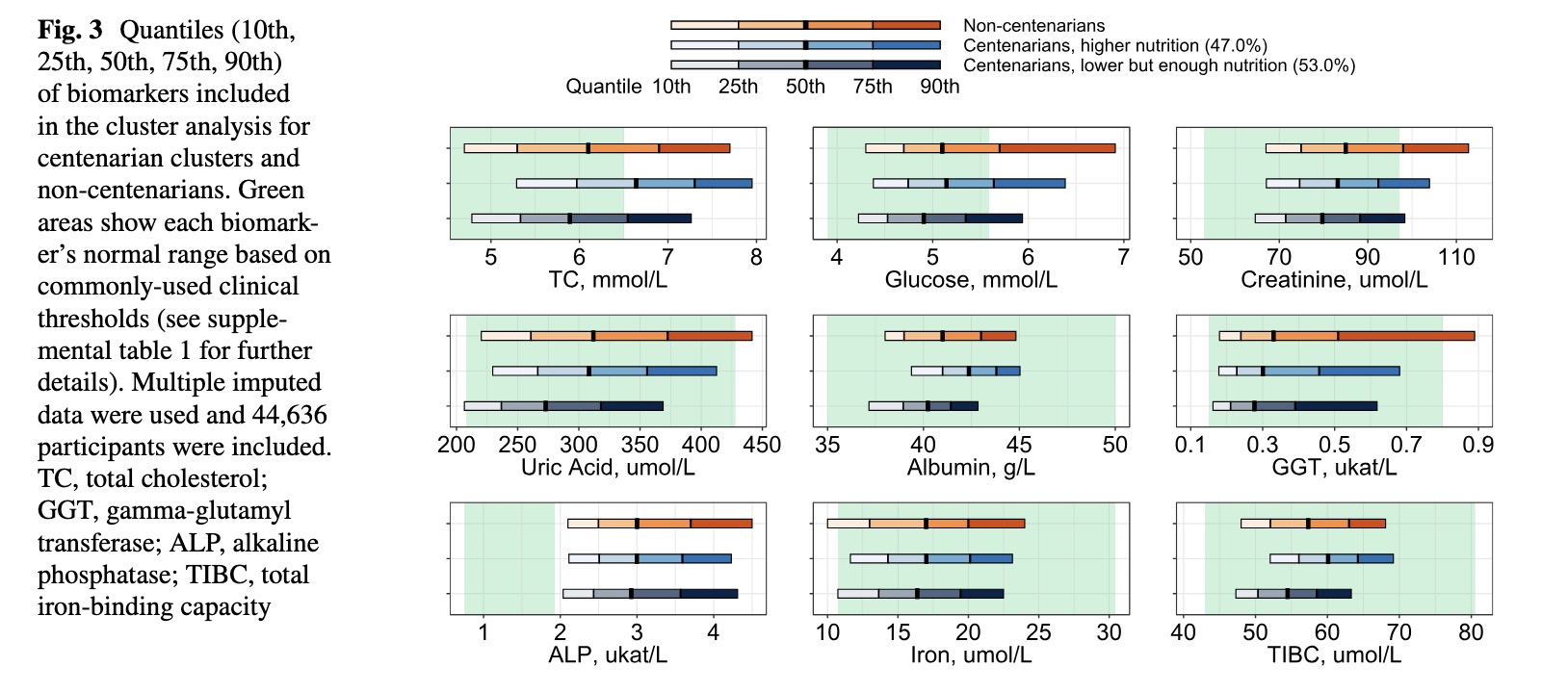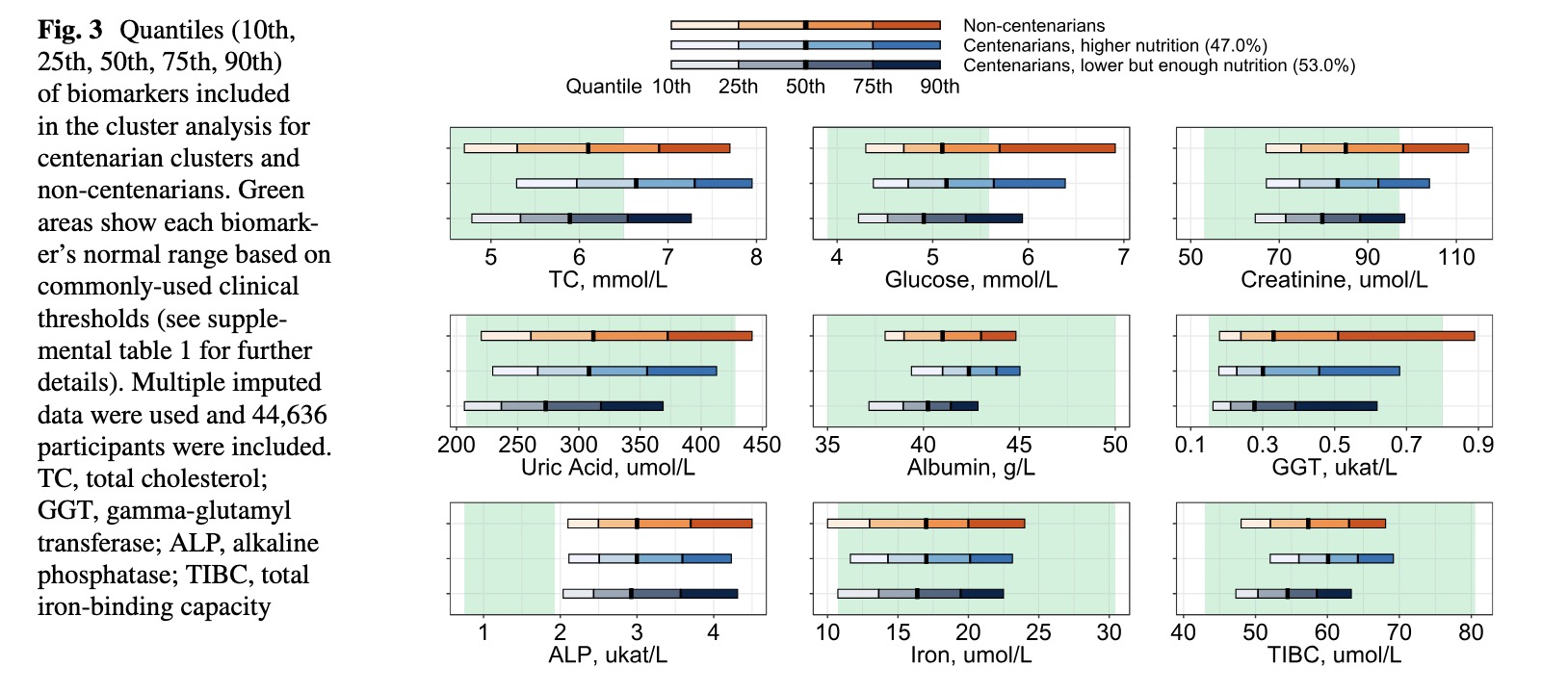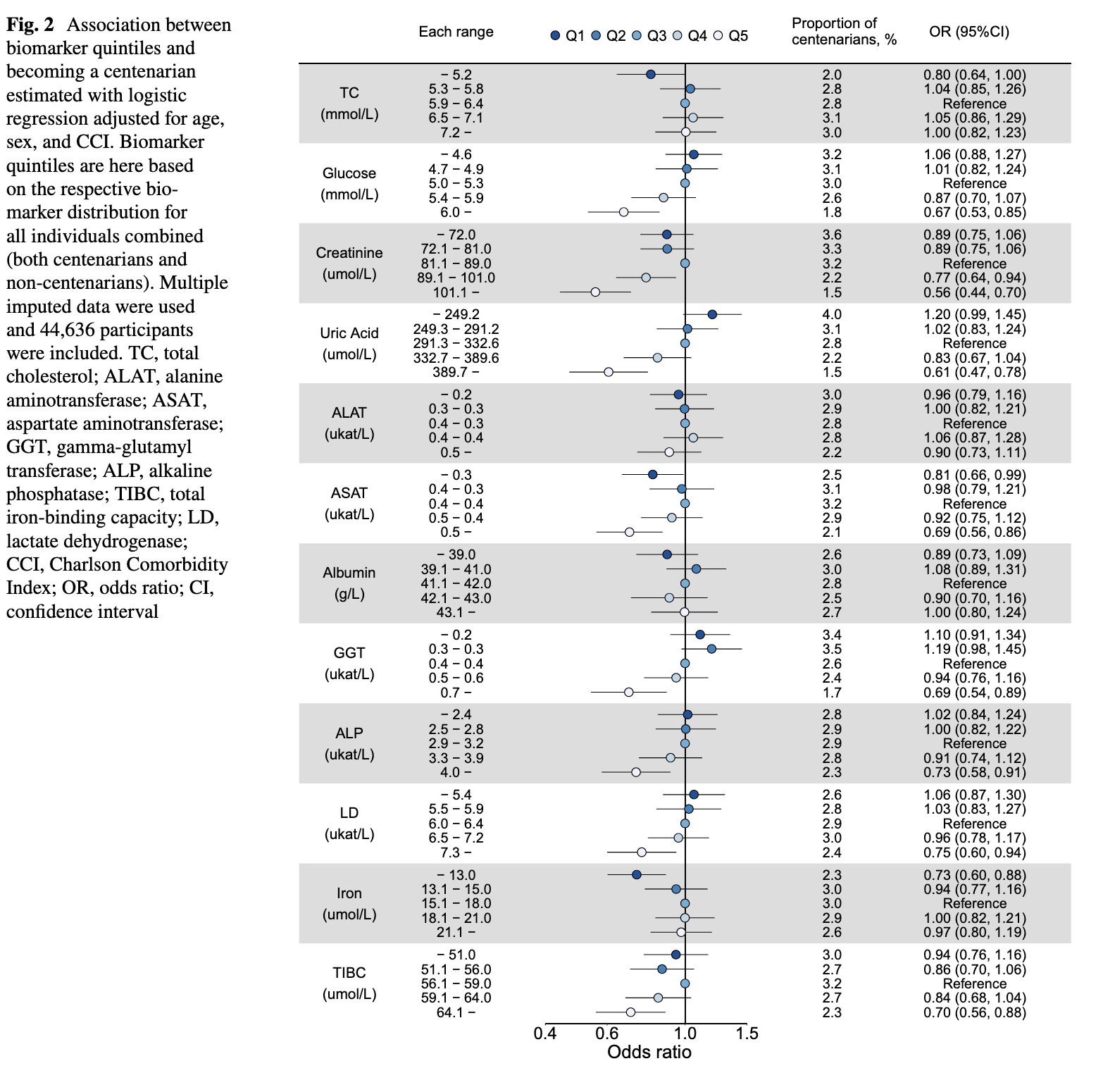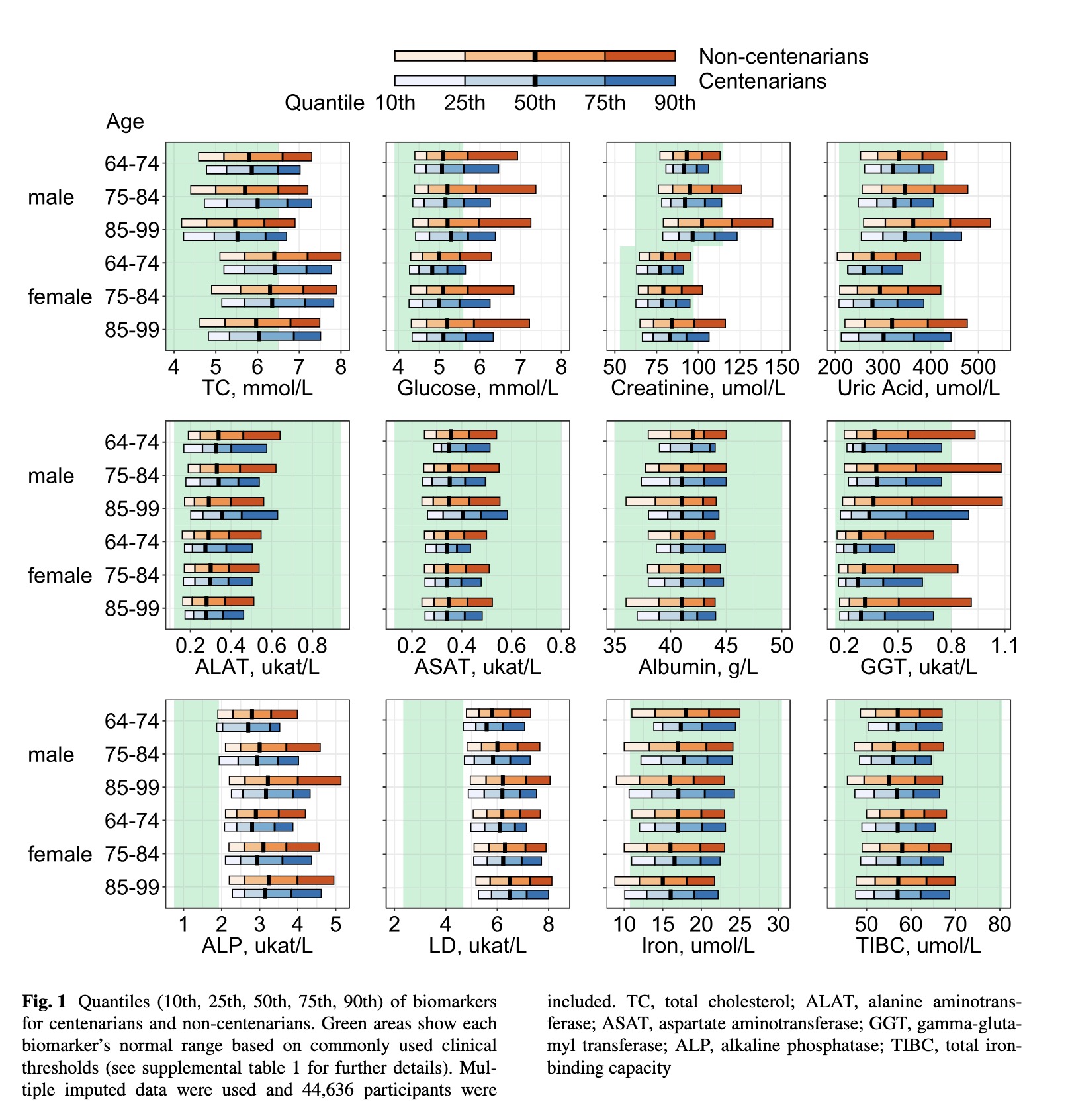Comparing biomarker profiles measured at similar ages, but earlier in life, among exceptionally long-lived individuals and their shorter-lived peers can improve our understanding of aging processes. This study aimed to (i) describe and compare biomarker profiles at similar ages between 64 and 99 among individuals eventually becoming centenarians and their shorter-lived peers, (ii) investigate the association between specific biomarker values and the chance of reaching age 100, and (iii) examine to what extent centenarians have homogenous biomarker profiles earlier in life. Participants in the population-based AMORIS cohort with information on blood-based biomarkers measured during 1985-1996 were followed in Swedish register data for up to 35 years. We examined biomarkers of metabolism, inflammation, liver, renal, anemia, and nutritional status using descriptive statistics, logistic regression, and cluster analysis. In total, 1224 participants (84.6% females) lived to their 100th birthday. Higher levels of total cholesterol and iron and lower levels of glucose, creatinine, uric acid, aspartate aminotransferase, gamma-glutamyl transferase, alkaline phosphatase, lactate dehydrogenase, and total iron-binding capacity were associated with reaching 100 years. Centenarians overall displayed rather homogenous biomarker profiles. Already from age 65 and onwards, centenarians displayed more favorable biomarker values in commonly available biomarkers than individuals dying before age 100. The differences in biomarker values between centenarians and non-centenarians more than one decade prior death suggest that genetic and/or possibly modifiable lifestyle factors reflected in these biomarker levels may play an important role for exceptional longevity.
Full PDF of paper is available at the above link
Higher levels of total cholesterol and iron and lower levels of glucose, creatinine, uric acid, aspartate aminotransferase, gamma-glutamyl transferase, alkaline phosphatase, lactate dehydrogenase, and total iron-binding capacity were associated with reaching 100 years.
Implies Cholesterol is good, and Glucose control is important, which I think means insulin sensitivity is a key factor in living to 100
One really good aspect of this study vs the normal "blue zone" observational studies, is there is hard data, accurate biographic data (i.e. no poor record keeping, or incentives to lie about age).



